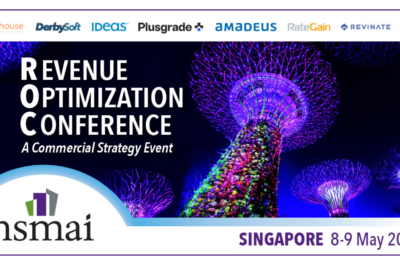In the hospitality industry, the shift from RevPAR to broader revenue metrics like TrevPAR or GOPPAR is hindered by a fragmented approach to revenue management, lacking a unified culture and cross-departmental alignment.
A revenue management culture is defined as a cross-departmental understanding of the importance of revenue management principles including fact-based data-driven strategies and the impact of discounting on profitability to increase demand.
Despite applying revenue management principles to optimize RevPAR in this hospitality industry since the 1990’s there are only very select cases of successfully moving from RevPAR to TrevPAR (Total Revenue per Available Room) or even GOPPAR (Gross Operating Profit per Available Room). The reason based on my 30 years’ experience as a revenue management specialist is the lack of a revenue management culture.
Hotel Operators might have a designated Revenue Manager (whether in name only without any training whatsoever will be discussed in a separate article), might have applied some revenue management principles like rational pricing (don’t sell your breakfast inclusive rate lower than the room-only rate) or might even have deployed an automated revenue management system, but one or all three of the above does not constitute a revenue management culture.
While any form of revenue management is arguably better than no revenue management at all, even rooms revenue management or RevPAR optimization strategies require an understanding of revenue management principles across the various segments of the commercial department, which unfortunately is not a given.
I have experienced too many times that due to non-aligned KPI’s (Key Performance Indicators) Sales is driving occupancy by bringing in as many contracts as possible while the revenue management department is trying to block these rooms from coming in using yield management to protect the ADR of the property and to avoid displacement.
Having a revenue management culture would prevent or at least vastly reduce such scenarios, because the KPI’s of both departments are aligned towards revenue optimization and the revenue manager has pro-actively informed the sales department of periods of low demand where additional occupancy would be incremental as well as high demand periods where only premium rooms might be available for a potential group.
A key factor to implement a revenue management culture successfully is the cross-department understanding of revenue management principles as stated in the definition above, so it boils down to effective communication and training. For the revenue manager to understand and implement revenue management principles alone is not sufficient and nor effective as these principles should be understood by other commercial disciplines as well. To further strengthen the application of a revenue management culture, it would be beneficial for the revenue manager to also understand the challenges of sales. Back in the day it certainly helped me building a stronger bond with the sales department by joining sales calls/sales mission and trying to convince a client to utilize our property versus a competitor.
Communication and cross-training is key and at Wolf Commercial Consulting it is our passion to build and strengthen the revenue management culture of any organization. Join the revenue management foundation training in Phuket.
Stefan has more than 30 years of experience in the hospitality industry. He started his career with Marriott in Germany and Korea. At the InterContinental Hotels Group based in Beijing he was part of a global taskforce developing an in-house Revenue Management Academy for the company. He built a revenue management culture for Shangri-La Hotels & Resorts based in Hong Kong and was responsible for global RM strategies of the Jumeirah Group in Dubai.
He set up the revenue management infrastructure for Rocco Forte Hotels based in London and was responsible for the revenue management and distribution strategy at the Onyx Hospitality Group in Bangkok. After joining the Bangkok based accommodation provider favstay as Chief Commercial Officer, he opened his own commercial consulting company and now lives in Korea.




![[PR] PR_Ascott and Vimut Hospital_2024](https://www.traveldailynews.asia/wp-content/uploads/2024/04/PR-PR_Ascott-and-Vimut-Hospital_2024-400x265.jpg)






























































